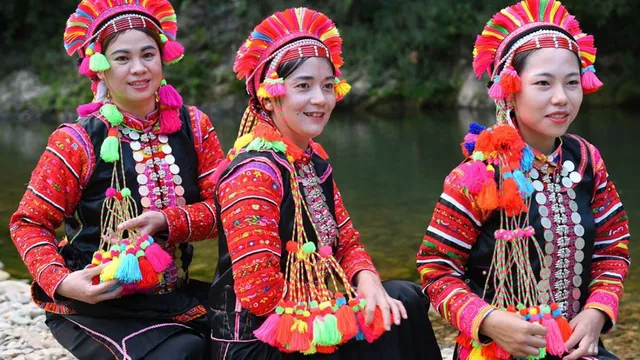- By Shivangi Sharma
- Thu, 30 Oct 2025 11:14 PM (IST)
- Source:JND
The Lahu originally came from the area of Qinghai Lake in northwestern China; they migrated south into the richly verdant southwest of China during the Spring and Autumn and Warring States periods (770 BC–221 BC). Today, their customs surrounding marriage and death offer a glimpse into a worldview shaped by ancestral beliefs, ritual symbolism, and cultural duality.
Traditionally, one of the most salient Lahu customs is the complete shaving of the head. Originally, both men and women would shave their hair, leaving only a symbolic tuft called “soul hair.” However, with time, the tradition gradually changed.
Since 1950, unmarried young Lahu women have been allowed to grow and braid their hair-a symbol of youth and marriageable status-until their wedding day, when the bride shaves her head clean and assumes a new identity as a married woman. The act is public, ceremonial, and steeped in Lahu conceptions of purity and renewal.
During festivals, men and women also carry a long rectangular embroidered bag called "miancuo," part of their traditional attire that reinforces cultural belonging.
A Mysterious Funeral Ritual
Death, for the Lahu, is surrounded by equally arresting customs. Upon someone’s passing, families fire gunpowder guns at the door, an announcement to both the village and the spirit world.
But the most unusual ritual involves a pig. A white thread is tied between the deceased’s hand and the neck of a pig, which is then drowned in a basin. The symbolism remains unclear; scholars suggest it may guide the soul or act as an offering. Relatives may eat the meat, but the immediate family abstains. The deceased is positioned inside the home with feet toward the central room and head toward the door, before a shaman (“Mo Ba”) performs rites to summon the soul back for farewell.
Two women carrying torches lead the body to burial. Some communities additionally perform mountain-returning rituals to ensure peace in the afterlife.
ALSO READ: Louvre Heist: 5 More Arrests In $102 million Theft; Police Yet To Recover Stolen Jewellery
Duality And Inheritance
The Lahu believe gender roles must balance. Sons inherit from fathers, daughters from mothers, and children may adopt either surname depending on circumstance, a rare practice in China. Urban education and modern lifestyles mean younger Lahu increasingly decline ancient customs. Families debate tradition vs. opportunity, each wedding or funeral becoming a point of quiet negotiation.

